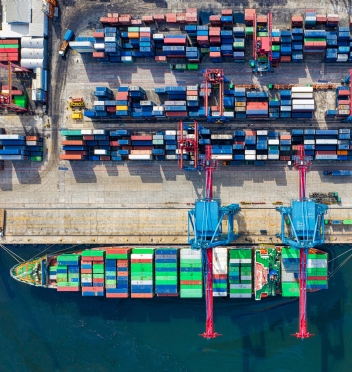Global Perspectives
Private Capital - A Tale of Two Halves
As we pass the mid-year point, data surveys and reports chronicle the progress of Private capital fundraising and deployment.
A striking feature of these reports is the rolling assessment of resurgent inflation and rising interest rates as Central banks scramble to choke off inflationary forces before they become structurally embedded.
At the turn of the year, Private Capital continued to enjoy a strong performance, according to the McKinsey Private Markets Annual Review, covering the whole spectrum of Private capital (private equity, real estate, debt, infrastructure and natural resources).
By the end of 2021, fundraising had scaled new highs reaching an estimated $1,184bn, up 20% from the prior year. Preqin reported deal-making in overdrive, with $3.5trn deployed across all asset classes. But the McKinsey review published in March also cited new risks that threatened to take the shine off this stellar performance.

Rapid base rate increases, and quantitative tightening fuelled by concerns over Ukraine, higher food and energy costs, supply chain disruption and labour shortages have combined to rattle the investment markets.
The Bain 'Shifting Gears: Private Equity Report Midyear 2022' acknowledges the strength of first-half deal-making, but cites inflationary pressures as 'starting to hit home’ and counsels firms to reflect on whether the end of the business cycle is in sight. The sharp reduction in exits and fundraising activity are cited as reasons to run down-turn scenario modelling and to focus on the changes required for due diligence.
With inflation rising beyond 9% in the US and the UK, the spectre of recession is looming, and the astute fund manager is re-evaluating their existing portfolio companies' ability to sustain returns in an environment of lower revenues and rising costs. And there can be little doubt that with debt servicing burdens rising, the banks supporting portfolio companies will look to reassess their clients' debt and capital structures.
Historical spikes in inflation have often prefaced recessions, but the link between the two is by no means guaranteed. And recessions tend to deliver short, sharp shocks to the economic system, providing the opportunity for contrarian investment into a market where prices soften, and multiples offer better value.

The current stage in the business cycle will favour those asset classes in high demand and where the ability to pass on costs through increased prices will be at a premium. In this context, infrastructure investment has some inherent advantages.
Infrastructure: Enabling the Fabric of Society
According to John Gilligan and Mike Wright in their seminal work 'Private Equity Demystified’, the origins of the modern Private Equity industry lie in the buyout boom of the 1980s, with innovations in the sector giving rise to rapid growth, overtaking that of public markets in the ensuing decades.
Whether measured by the amount invested, the number of new funds raised or the amounts of assets under management; the last 40 years have seen the rise and rise of private capital with the emergence of sub-categories that are now recognised as distinct asset classes.
One such is infrastructure.
Infrastructure could be described as the fabric of society, underpinning the provision and use of shared resources that enable communities to flourish.
Preqin, a leading provider of data, analytics and insights to the alternative assets community, defines infrastructure investment as:
‘Infrastructure as an alternative asset class encompasses investment in the facilities, services, and installations considered essential to a society's functioning and economic productivity. The infrastructure market comprises various industries and sectors categorised as economic or social infrastructure.’

Economic Infrastructure can include energy, natural resources, renewables, clean tech, logistics, roads, bridges, and utilities, to name a few examples. Social Infrastructure might consist of education, government, defence, healthcare and judicial capabilities.
Historic 19th Century investment into buildings, railways, roads, and ports has evolved, with the asset class now commonly known as private infrastructure emerging in the 1990s, initially in Australia, then the UK and Canada.
Infrastructure investments tend to have lower volatility and a lower correlation to other assets and to public markets in more unsettled conditions. Whilst arguably more complex in management requiring interaction with political and societal stakeholders, infrastructure investments tend to have stable cash flows and offer some degree of protection against inflation, often with the ability to pass on price increases.
Whilst longer in duration and comparatively less liquid when compared to many other forms of Private capital, Infrastructure investments have a distinctive appeal for long-term investors such as pension and sovereign wealth funds.
According to Preqin, Infrastructure and natural resources tested all-time highs in 2021, with $137bn of Global funds raised and Global AUM passing $1trn.
Given the world's big macro themes, energy transition and security, digitisation and sustainable travel, it is estimated that as much as $15trn of new infrastructure investment is required by 2030 to maintain current levels of global growth.
Demand for investment remains high, and it seems unlikely that this will be derailed by the economic cycle. The need for urgent action on climate change and sustainable development indicates a further $3.5trn requirement. The infrastructure sector continues to be underpinned by solid fundamentals, which are very much locked into the net zero imperative.
.jpg)
The Mourant group of international legal offices is well placed to advise on the creation of infrastructure funds and the regulatory environment surrounding them through its regulatory consultancy arm Mourant Consulting. Mourant supports some of the leading blue-chip brands in the infrastructure sector, such as sequoia economic infrastructure fund and 3i.
Mourant reflects that depth of expertise across the entire Private capital spectrum by providing cutting-edge offshore legal, tax and regulatory consulting services, allied with entity management, administration and accounting services.
For further information and assistance, don't hesitate to get in touch with our funds team.
About our Blog
Global Perspectives provides regular, on-point commentary on relevant topics in a pithy and accessible way. Our observations and points of view are based on listening hard to clients global needs, priorities and concerns. We draw on insights from every area of our business and collaborate to deliver this global thinking; something that clients tell us is distinctive and sets us apart. If you'd like to find out more, please get in touch.
About Mourant
Mourant is a law firm-led, professional services business with over 60 years' experience in the financial services sector. We advise on the laws of the British Virgin Islands, the Cayman Islands, Guernsey, Jersey and Luxembourg and provide specialist entity management, governance, regulatory and consulting services.
.jpg)




